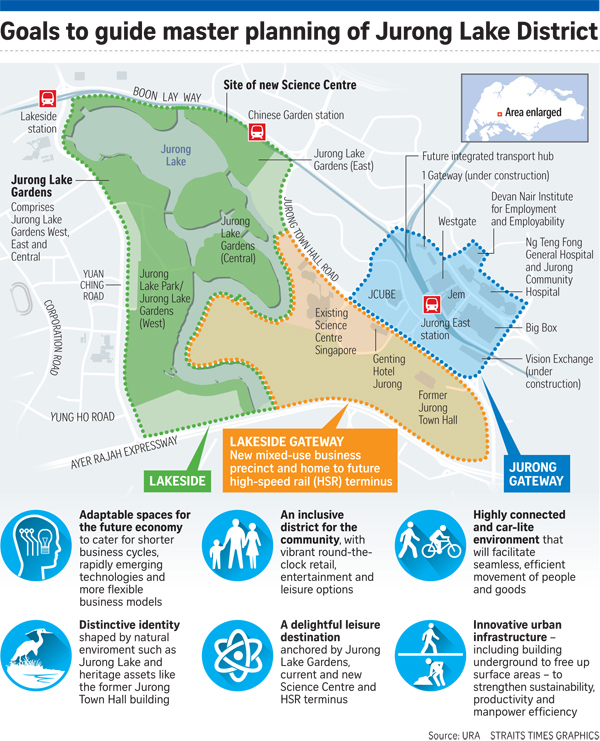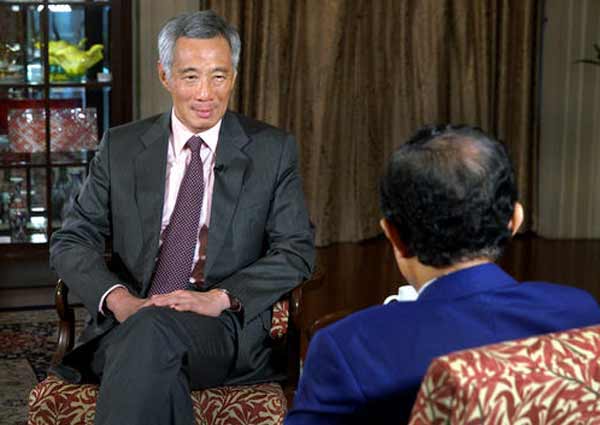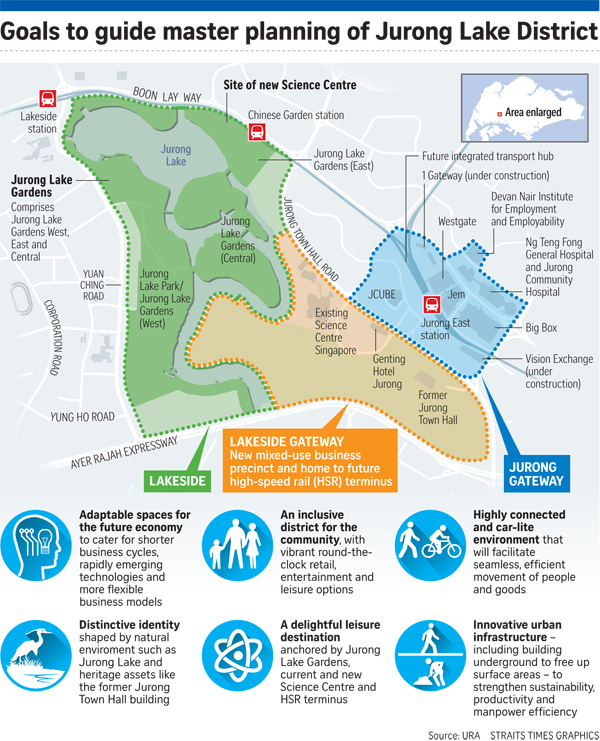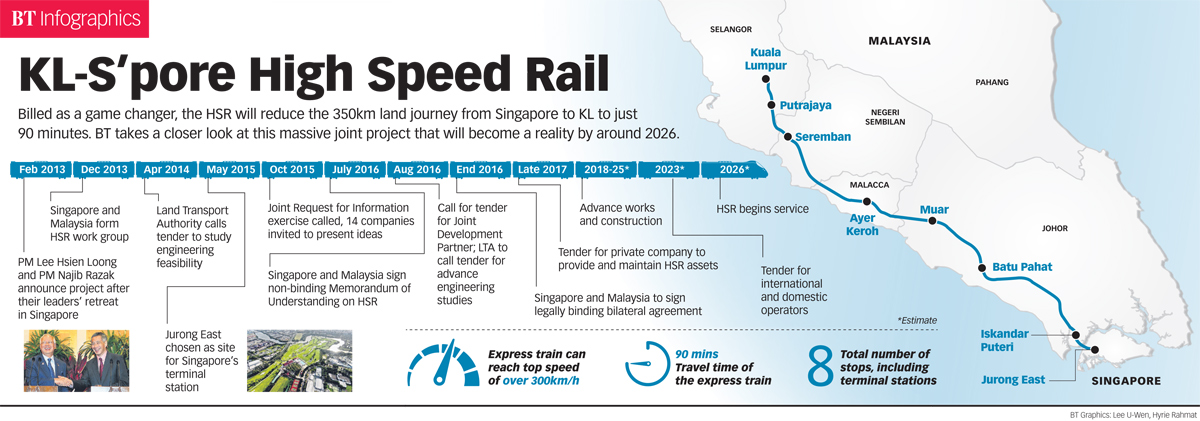SINGAPORE – Prime Minister Lee Hsien Loong says Singapore and Malaysia have made very good progress on a bilateral agreement on the Singapore-Kuala Lumpur High-Speed Rail (HSR), and hopes both sides can sign the agreement when he and Prime Minister Najib Razak meet at the Leaders’ Retreat.
“It is a very ambitious, very complicated and a very expansive project, in terms of scale. We have to try our best to anticipate what the likely issues are, when we build it, when we operate it, and have a clear understanding on how we will deal with it if a situation arises,” Mr Lee said in an interview with the chairman of Malaysian state news agency Bernama Azman Ujang on Monday (Nov 28).
“The first thing is to have a sound agreement between the two countries on the basis of how the project is structured, how it is going to be executed, and how it is backed by the two governments,” said Mr Lee in the interview, the transcript of which was released by the Prime Minister’s Office today (Nov 30).
“That is the first requirement, that we have a very good agreement which sets out clearly a sound basis to build and operate the system.”
Both countries have been discussing the agreement for more than a year, Mr Lee noted.
“We are almost there, and I hope that when I meet Prime Minister Najib at the next retreat, we will be able to sign the agreement,” he said.
See also: Singapore-KL high-speed rail: What you need to know
Singapore-Malaysia ink landmark High Speed Rail MOU
On Tuesday (Nov 29), Malaysian Minister in the Prime Minister’s Department Abdul Rahman Dahlan met Coordinating Minister for Infrastructure and Transport Minister Khaw Boon Wan, and Mr Abdul Rahman said on Instagram they met “to harmonise last minute details of the Bilateral Agreement on Malaysia-Singapore High Speed Rail project before signing ceremony in December”.
A memorandum of understanding for the HSR project was signed in July this year by Mr Khaw and Mr Abdul Rahman, and it was witnessed by the two prime ministers.
Construction for the project is expected to begin in 2018, with trains running in 2026.

Secondly, Mr Lee noted that the project’s execution will be very important – designing it, calling for tenders, evaluating the proposals.
“Several high-speed rail systems in the world have been lobbying very hard to get this contract – the Japanese, the Koreans, the Chinese high-speed rail,” he noted.
“Each has its strengths, and we will have a very difficult decision evaluating the bidders who come along and deciding which one is the best overall.”
Asked about the cost-sharing of construction, PM Lee said things like that had to be clearly specified, and it was one of the items that made the project complicated.
“When you have two authorities involved, you have to decide how to partition, where the line is drawn. I build my part, you build your part, and we have to meet at the same point,” he said. “If it does not meet then we have a big problem.”
PM Lee added: “It is complicated but there is a will. And there is a goodwill, and we would like to make it succeed.”
See also: Speed bumps ahead for ambitious Singapore-KL high-speed rail link
He was also asked if a third bridge between Singapore and Malaysia – which some in Malaysia had suggested recently – is necessary with the HSR project.
Mr Lee said there are currently no plans for it.
“We are not currently planning for a third bridge,” he said. “I have seen some statements in Malaysia suggesting one, but the high-speed rail is a very ambitious project. I would focus all my energies doing that one before we launch a new big project.”
As for an update on two joint projects between Singapore and Malaysia, in Marina South and Ophir-Rochor, Mr Lee said: “Both buildings are coming up and rising steadily. I read that they have reasonable sales so I think the projects will succeed.”
The developments were born out of a land-swop agreement, where Malaysia gave up control of its railway land that ran through Singapore in exchange for a Malaysia-Singapore joint venture involving six land parcels near the Central Business District.
He also noted the Afiniti Medini Wellness centre project is Iskandar was making progress.
PM Lee was also asked how Singapore tries to remain corruption-free, as well as the Presidential Election next year, which will be reserved for Malay candidates.
He noted that civil servants and ministers are paid a fair salary to minimise temptation, adding: “You come in, you cannot expect to get rich in the Government, but you should not become poor because you had to do public service.”
The People’s Action Party, from the start, also wanted to “run a clean system, a clean civil service, and a clean political leadership”.
“We have been quite unsparing in enforcing that. Whoever transgresses, whether it is senior or not, whether it is a civil servant or a minister, we have to investigate and consequences have to follow,” he said.
The public has also come to expect its government to run a clean system.
“The public attitude is very important. Because without that, if the public accepts that it is a normal way to do business, that if you are in power then these are perks of the office, that will be a very different situation even if we have the laws,” said Mr Lee.
As for the presidential election, he said the Government did not have a specific candidate in mind, “but we know there are people who will qualify”.
“There is no shortlist. It depends who comes forward. It is not for the Government to arrange. It is for the candidates to come forward,” he added.
Asked whether Singapore could see a non-Chinese PM, Mr Lee said: “It could happen in our lifetime.” He cited how Barack Obama became president, saying: “It is a long process but it is possible and I hope one day it will happen.”
“The racial patterns of voting is something very deeply ingrained. It is so in Malaysia; it is so in Singapore, perhaps less so in Singapore but it exists,” he added.
“If you look at America, even in this election, it was quite clear that the different ethnic groups had very different voting patterns. So that is a reality of human nature which we have to accept.”

This article was first published on November 30, 2016.
Get a copy of The Straits Times or go to straitstimes.com for more stories.








